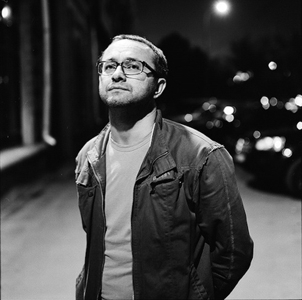Zvyagintsev employs a clever misdirection...
05/15/2012
Elena's opening embodies a certain stylization of stillness that one tends to associate with Russian cinema — an aesthetic that favors an amplification of small ambient sounds at the expense of more chaotic, realistic everyday noise, which imbues everyday moments with implications of looming disruption, buried resentment, and longing. Director Andrei Zvyagintsev is able to get most of the necessary exposition out of the way in the first five evocative minutes. A crow lands on the barren tree outside of an expensive and expansive residence. A middle-aged woman (the unforgettably wonderful Nadezhda Markina) awakes to the sound of an alarm clock. Tellingly, she's sleeping on a couch. She takes a few deep breaths, resigns herself to the approaching day in a fashion that's familiar to the deeply unhappy, and begins to comb her hair. She starts the breakfast tea and coffee and, more tellingly, proceeds to a bedroom to nudge an older man (Andrei Smirnov) awake who's soon revealed through body language to be, at the least, a live-in lover. Eventually the couple sit down to breakfast and exchange a few pregnant not-quite-pleasantries that reveal that they're somewhat recently married and that they mutually disapprove of how the other handles their adult child from prior relationships. We're soon told that the woman is Elena and the gentleman is her husband, Vladmir, and it's no accident that their association follows a series of rituals that are more characteristic of servant/master than wife/husband.
Elena is a film deeply concerned with class resentment, but the filmmakers' attitude—which is somehow simultaneously empathetic yet critical to the point of occasional resentment—toward their titular character is disconcerting and even shocking. Zvyagintsev employs a clever misdirection. You're initially led to assume that the film will be a carefully composed study of a sympathetic woman imprisoned by a financial need that's constantly exasperated by handouts to an unemployed loaf of a son, but the theme gradually reveals itself to be tougher and less easily resolved than that. Elena takes an unexpected stab at liberation only to immediately plunge herself into another arguably even worse domestic trap—a plot development that testifies to hell as being largely self-imposed.
Zvyagintsev employs a few of the broadest tropes associated with American film noir—the woman in dire straights, the cold man making her life miserable—in the service of an ultimately savage and distinctly Russian critique of family life as a series of inescapable negotiations and manipulations. Zvyagintsev has mentioned Woody Allen's Match Point as an influence, and while there are a number of thematic similarities between the two films, Zvyagintsev is selling Elena short with the comparison. Allen never got inside of Match Point's characters; his film was compelling but off-putting in its contempt for virtually everything. Elena, though, which puts you in the mind of an unexpected killer with an immediacy that recalls A Simple Plan, both the book and the film, as well as Donald E. Westlake's scathing novel The Ax, is tough, haunting, and eventually even casually heartbreaking.
Chuck Bowen
"Slant"
